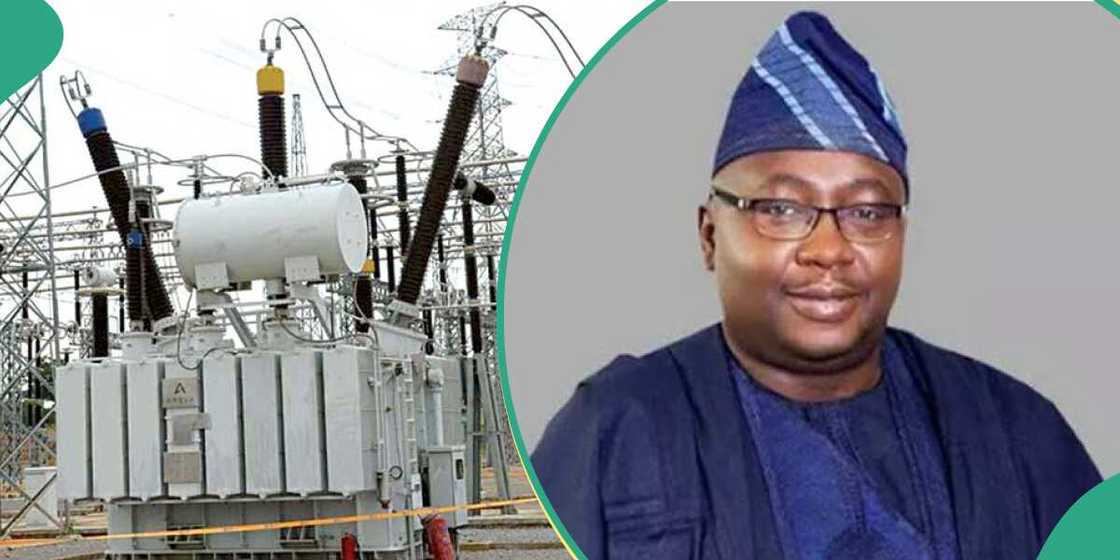Tinubu's Minister Laments as More Industries Shun National Grid, Generate Their Own Power
- The minister of power has expressed concerns about large electricity consumers avoiding the national grid in favour of generating their own power
- Adelabu insisted that continued use of captive power, rather than grid connection, is more expensive
- He also noted that Nigeria has recently increased its power generation to a record 5,155 megawatts (MW)
Don't miss out! Join Legit.ng's Sports News channel on WhatsApp now!
Legit.ng journalist Victor Enengedi has over a decade's experience covering Energy, MSMEs, Technology and the Stock Market.
Adebayo Adelabu, the minister of power, has expressed concerns about large electricity consumers opting out of the national grid to generate their own power.
Adelabu disclosed this while speaking during the board retreat of the Nigeria Electricity Liability Management Company (NELMCO) in Lagos.

Source: UGC
He emphasized that the national grid provides a more dependable power source compared to the captive power plants currently utilized by these bulk consumers.
Captive power refers to a generation facility exclusively used to supply electricity for a specific customer's operations without selling any generated power to the national grid or other external entities.
Industries favor captive power over national grid
According to TheCable, Adelabu expressed regret that even though Nigeria has boosted its power generation to a record 5,155 megawatts (MW), the increased capacity is not being fully utilized.
He said:
“Majority of bulk electricity users, such as industries, are off the grid due to lack of trust and confidence in the past. They now have their captive power plants in their industries which are more expensive.”
Adelabu mentioned that efforts would be made to encourage bulk consumers to reconnect to the national grid, highlighting that relying on captive power instead of grid electricity is more costly.
He pointed out that the average cost of generating captive power is approximately N350 to N400 for those using gas, around N950 for diesel, and about N550 for petrol.
He added that as consumers and industries witness the trust, confidence, and stability the grid offers, they would be motivated to return to it for a more affordable power supply.
Recently, the Nigerian Electricity Regulatory Commission granted permits for mini-grid electricity generation to Golden Penny Power Limited, MTN Communications Nigeria Limited, Havenhill Synergy, and several other entities.
Employers seek reversal of electricity tariff hike
In related news, Legit.ng reported that the Nigeria Employers Consultative Association (NECA) has expressed concern over rising electricity tariffs.
The association said the move negatively impacts businesses and the general public and should be reconsidered.
NECA's director general, Adewale Smatt-Oyerinde, explained in an interview that the tariff hike has resulted in higher costs for goods and services.
PAY ATTENTION: Donate to Legit Charity on Patreon. Your support matters!
Source: Legit.ng




